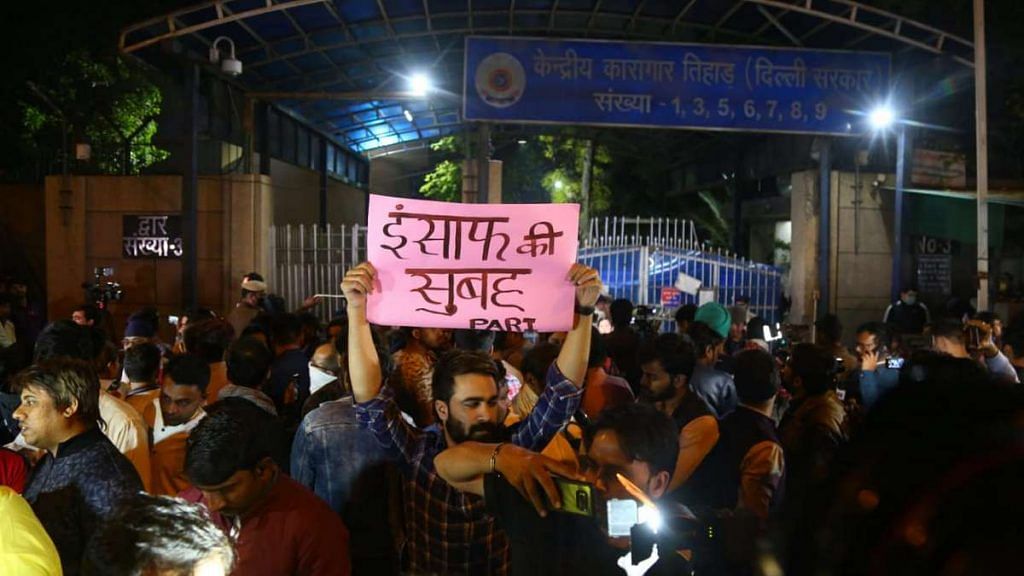New Delhi: The European Union (EU) Friday condemned the hanging of four convicts of the 16 December Delhi gang rape case, calling it a “cruel and inhumane punishment”.
“Today, four executions took place in India. Those executed were convicted of gang-rape and murder of a paramedical student. The European Union reiterates its condemnation in the strongest terms of these heinous crimes and expresses its sympathy to the family of the victim. Perpetrators must be held accountable for their acts and receive appropriate punishments,” said Virginie Battu-Henriksson, spokesperson for Foreign Affairs and Security Policy, European Union External Action, in a statement.
At the same time, the spokesperson added: “The EU recalls its unequivocal opposition to the use of capital punishment in all circumstances. It is a cruel and inhumane punishment, which fails to act as a deterrent and represents an unacceptable denial of human dignity and integrity.”
The four convicts — Mukesh Kumar Singh (32), Pawan Gupta (25), Vinay Sharma (26) and Akshay Kumar (31) — were hanged early Friday morning, seven years after the crime.
This is the first time that four convicts were hanged together on the same platform.
Also read: Day before 2012 gangrape convicts’ hanging, disbelief and despair at their Ravidas Camp homes
International jurist panel condemns too
Meanwhile, calling for an abolition of death penalty, the International Commission of Jurists (ICJ) also denounced the executions and urged the Indian government to introduce “systemic changes to the legal system that would deter violence and improve access to justice for women”.
“State-sanctioned executions are little more than public theatre that risk celebrating and perpetuating violence at the expense of the rule of law,” said Frederick Rawski, ICJ’s Asia-Pacific Director in a statement.
“As heinous as these crimes were, the imposition of the death penalty — the deterrent effect of which has been widely debunked — does nothing to improve the lives of women,” Rawski added.
The ICJ also highlighted a statement made by the UN Human Rights Committee that said: “The death penalty cannot be reconciled with full respect for the right to life, and abolition of the death penalty is both desirable and necessary for the enhancement of human dignity and progressive development of human rights.”
Also read: ‘Will rapes magically end now?’ — Families of 16 December convicts blame media trial
